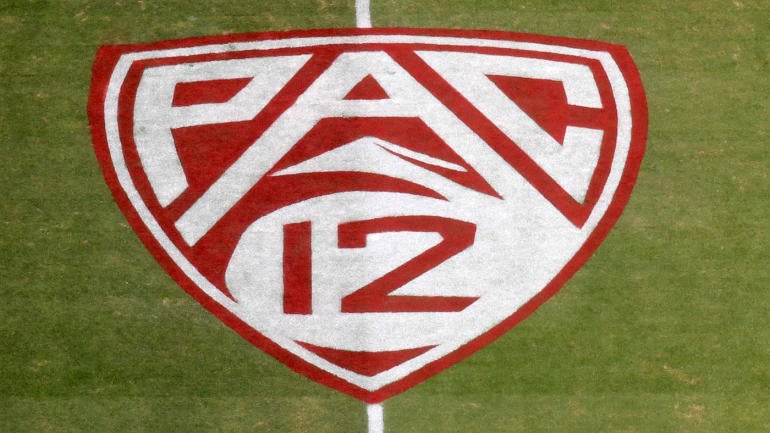
New Pac-12 commissioner George Kliavkoff welcomed the league's athletic directors to Las Vegas for in-person meeting last week, and it's clear that while his tenure does not officially begin until July 1, the conference is already considering major changes to its approach for college football.
According to Jon Wilner of the Mercury News, Kliavkoff and the league's athletic directors have "engaged in preliminary discussions" regarding changes to the structure of the football season in the wake of the expected College Football Playoff expansion. Among those changes are eliminating divisions and dropping from nine conference games per season to eight.
Wilner reported that potential changes are "months, if not years away," but pointed out how the structure of the six automatic qualifying bids to the 12-team playoff model have sparked the discussion of eliminating division play. Since there are no guarantees for the Power Five, having the two best conference records represented in the game increases the chances of the winner being one of the six highest-ranked champions. Division play allows for a scenario where a lower-ranked or unranked division winner upsets a highly-ranked division winner, and in doing so potentially knocks the Pac-12 from receiving an automatic bid.
The Pac-12 is likely not alone in this discussion, as the new format has sparked conversation in every conference office about the pros and cons of division play. The ACC had no divisions for its 15-team league with Notre Dame added for 2020 only, and it saw both of its conference championship game participants -- Clemson and Notre Dame -- make the four-team playoff field. Conferences are concerned not only for the scenario of a division-winner upset, but also maximizing the odds of getting multiple teams in the field.
Maximizing the Pac-12's opportunity is also at the heart of the discussion regarding conference schedule. Currently the league plays nine conference games and most schools have one high-level non-conference game -- like Oregon's date with Ohio State this year or Washington's trip to the Big House to play Michigan. The Pac-12 is one of three power conferences playing a nine-game schedule, along with the Big Ten and the Big 12. The SEC and the ACC are the only power conferences playing eight league games per year, but they are also the only power conference that has been represented in every College Football Playoff since the format's inception in 2014.
In theory, dropping a conference game could lead to better records for Pac-12 teams, but Wilner writes that "for the purposes of ticket sales, fan engagement and TV dollars, most campus officials believe the Pac-12 nonconference schedules cannot become less attractive." There are also logistical issues to make that schedule attractive if there's another nonconference game since only the Pac-12 and Mountain West are in the western half of the country while the other eight FBS conferences are mostly between the Midwest, Texas and the Atlantic Ocean.
While the College Football Playoff expansion to 12 teams is expected to be formally approved this fall, it's not going to take effect immediately. The earliest it could take effect is 2023, which is some important timing that lines with up with the reported negotiating window for the Pac-12's next media rights contract. Any changes to Pac-12 football, all made with the hopes of improving playoff representation, will likely be in place for those two big events.
Kliavkoff has been vocal about the Pac-12's need to improve the on-field results for football since he was announced as the successor to Larry Scott, who in his final weeks as commissioner has been a part of the College Football Playoff expansion discussions. As Kliavkoff takes over, positioning the Pac-12 to use this expansion to their benefit has become a top priority.





















